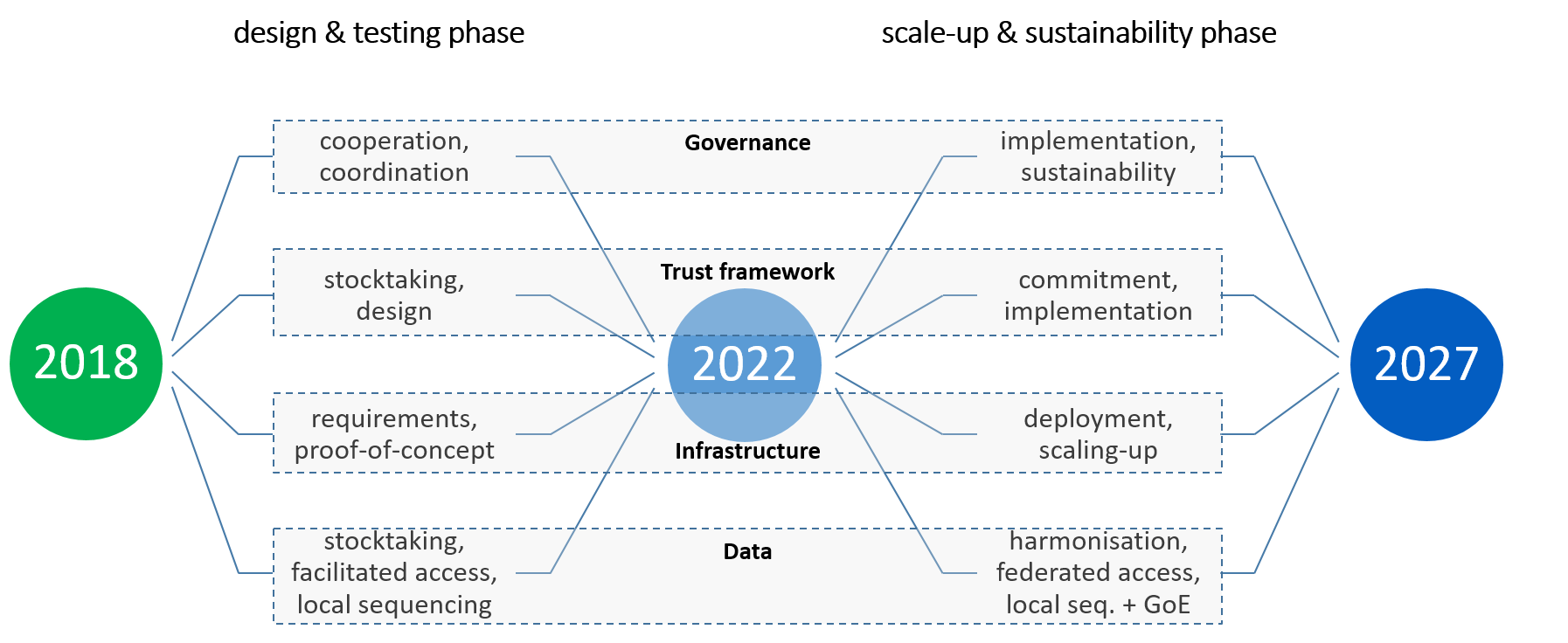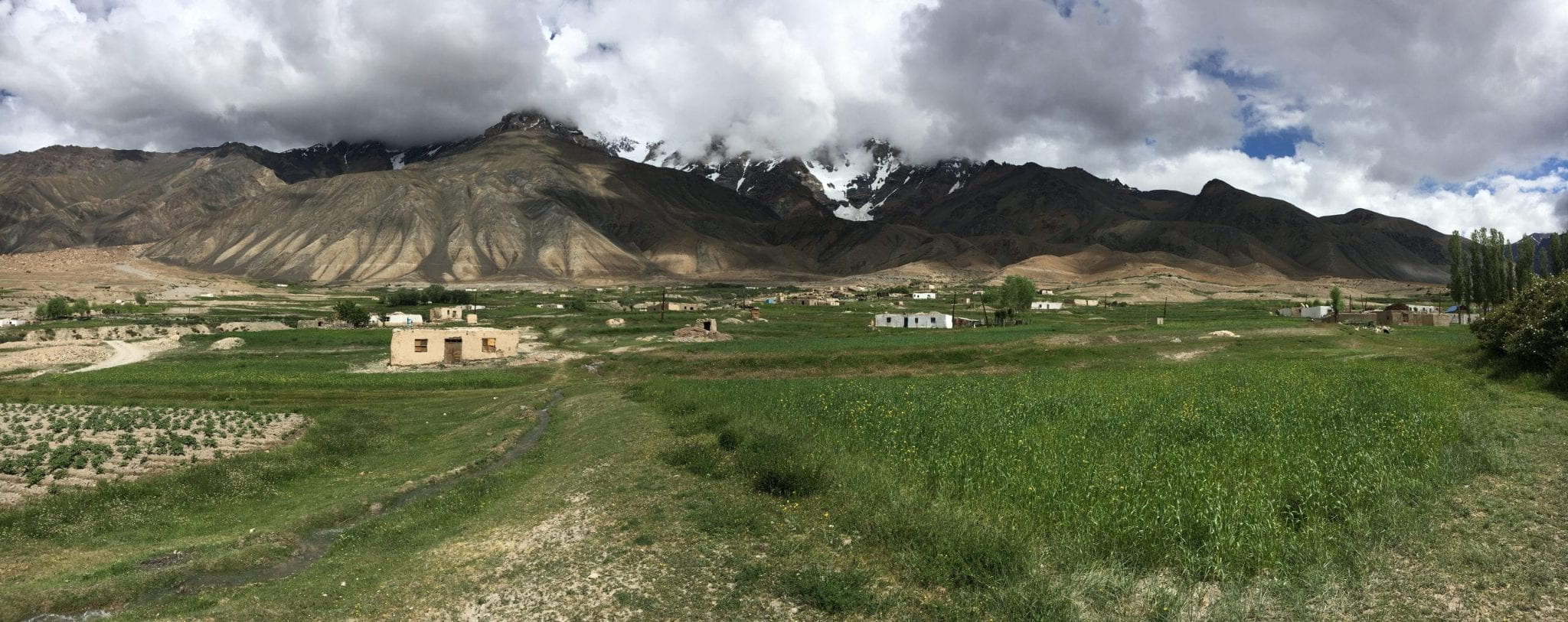After South Korea adopted smart agriculture as a way to tackle resource constraints and climate change, Today, it seeks to share its experience and export its technological innovations to the world to reserve a place in the market of the future.
By 2050, The global population will reach 10 billion, A reality that will put humanity at risk to food security around the world. With the development of technology, Scientists and experts have been able to develop agricultural techniques capable of securing food at a lower cost and in larger quantities to change the equation that has prevailed since the emergence of agriculture.
Each country adopts its own model in agriculture according to its priorities, needs and capabilities. In South Korea, The authorities seek the perfect combination of meeting local requirements, preserving cultural heritage, achieving technological development, adapting to conditions and preserving the livelihoods of rural people. In a country where arable land accounts for 22% of its area, compared to 78% of mountainous and urban areas.
Korean agricultural production has faced many challenges over the years. According to 2019 statistics, The percentage of cultivated areas in Korea has shrunk by about 29% since 1975. It was accompanied by a 7.2% increase in greenhouse areas. These figures are due to several reasons, such as urban and industrial sprawl, Water resources are limited in quantity and of low quality, climate change, which threatens the stability of production, In addition to the rapid contraction of rural communities and the ageing of their children, 46% of farmers are over 65 years old, This means a real threat to food security. When farmers participated in the recent export fair, Requested government assistance in finding stable sources of sales, strategies to keep pace with ever-changing market demands, and mechanisms to overcome legal and tax obstacles in importing countries, They are often very different from the regulations in Korea.
All this alerted the Korean government, Through the Ministry of Agriculture, Food and Rural Affairs, to the importance of catching up with the new revolution that bore the name of smart or digital agriculture, It means employing modern technologies in everything related to crop production and distribution, Starting with sowing seeds, down to supply chain management.
The idea of smart agriculture is based on key elements, It combines big data analysis, algorithms, ICT, the Internet of Things, marginal computing, cloud, GIS, robotics, satellite imagery and drones.
To achieve global leadership, The government has drawn up five-year economic plans, It supported comprehensive solutions in smart agriculture, It resorted to investing in social capital in the technology sector, It launched the National Innovation System to develop regional economies and lead research and development.
The development of the Korean smart farm model is a top priority for government policymakers. In 2018, the authorities began encouraging startups and establishing industrial infrastructure. The Ministry's Rural Development Department is looking at ways to secure the technologies and needs needed to run a fully intelligent operation.
While the Ministry looks after young farmers lest they abandon their jobs, It seeks to re-promote agriculture, It has already set 2022 as the deadline for converting 7,000 hectares of fields and orchards along with more than 5,700 animal farms to digital facilities.
In the same vein, The government plans to form a team of specialists from 8 agricultural and commercial government institutions, most notably the Rural Development Department and the Korea Trade and Investment Promotion Authority. In order to accelerate the export of smart agriculture by attracting consultations from the public and private sectors, and the promotion of world-renowned Korean smart technologies, Achieving competitiveness standards in terms of quality and cost, and find potential buyers in any country, Provide local companies with market information in those countries.
For example In 2021, the Ministry cooperated with a leading company, To build a smart farm in the UAE, The project relied on a mist cooling system that reduces water consumption while maintaining an ideal temperature for the growth of crops. The Omani government also imported two Korean-made agricultural containers of 12 meters each for use in smart vegetable farming. Korea has exported 10 smart greenhouses to the Philippines to build the capacity of local farmers and train them in the use of modern technologies to produce mushrooms, tomatoes and other high-value crops.
But the dedication of smart agriculture as a new reality requires radical changes in the rural lifestyle, which poses many challenges. In addition to data privacy, cybersecurity and property protection concerns, Farmers in remote areas often face difficulties accessing the Internet. It is the first element on which the concept of smart farm is based. Therefore, The government has worked to establish an advanced telecommunications infrastructure, The bandwidth capacity and the number of secure servers have increased, Internet access is now available in the homes of 99.5% of Koreans.
But an internet connection is not enough, Reaching a "smart farm" requires complex and expensive techniques. Qualifying farms to operate them may require a long learning period. This may be a burden on small farmers, They develop a sense of rejection of this new technology.
The Korean model of smart farm remains a long-term project. It is intended to secure independent technologies qualified for global competition in the agricultural production market, and to devote an experience that can be replicated in other countries, It is able to overcome climate and demographic barriers to achieve food security and sustainability.
References:
https://www.koreatimes.co.kr/www/tech/2022/09/419_336030.html
https://overseas.mofa.go.kr/no-en/brd/m_21237/view.do?seq=114






